Research Publications
Our ELL faculty’s work cover a wide range of topics, and are published in books, peer-reviewed journals and practitioner/professional reports. This page features selected publications in the last three years.
Book Chapters
.jpg?sfvrsn=25055ab1_1) | Implementation of a national curriculum: An evaluation perspectiveIn G. Hall (Ed.), The Concerns Based Adoption Model (CBAM): Applications and Implications for Educational Change. Sage. |
 | Designing for multimodal literacy and socio-emotional learning through digital multimodal composingIn Querol-Julián, M., & Fortanet-Gómez, I. (Eds.). (2025). Multimodal Literacy in English as an Additional Language in Higher Education (1st ed.). Routledge. By Liu Yingxue & Victor Lim Fei |
 | School Libraries: A Systematic ReviewIn Teresa Cremin & Sarah McGeown (Eds) (2025).Reading for Pleasure: International Perspectives. Routledge. By Loh Chin Ee & Kasey Garrison |
 | Approaches and Practices for Intercultural Knowledge Development in Internationalizing TESOL Teacher Programs: An Overview of the Field.In Vander Tavares (Ed) 2025. Internationalization of TESOL Teacher Education: Global and Critical Perspective. Multilingual Matters. By Ng Chiew Hong , Cheung Yin Ling & Zhang Weiyu |
 | Ethical criticism as pedagogy for the development of other-centric interpretive communities in the Literature classroomIn Kelly, K., Vinz, R., & Rogers, P. M. (Eds.), Building literate communities: In conversation with Sheridan Blau (pp. 130-160). Champaign, IL: National Council of Teachers of English. By Suzanne Choo & Dominic Nah |
 | Future directions for writing teacher cognitionIn Nassiji, H. (Ed.), The TESOL encyclopedia of English language teaching. Wiley. By Icy Lee |
 | Afterword: Revisiting second language writing teacher expertiseIn Hirvela, A., & Belcher, D. (Eds.), Expertise in L2 writing instruction: Conceptual and empirical understandings. Routledge. By Icy Lee |
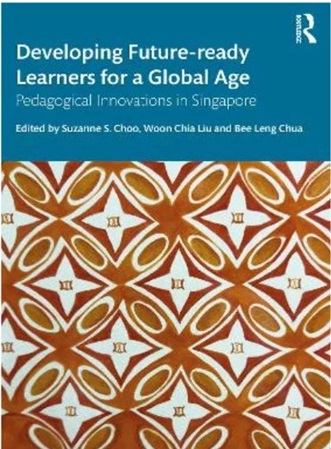 | Transtextual pedagogies in the teaching of Literature: Insights from Literature classrooms in SingaporeIn Choo, S. S., Liu, W. C., & Chua, B. L. (Eds.), Developing future-ready learners for a global age: Pedagogical innovations in Singapore (pp. 276-286). New York: Routledge. By Suzanne Choo & Dominic Nah |
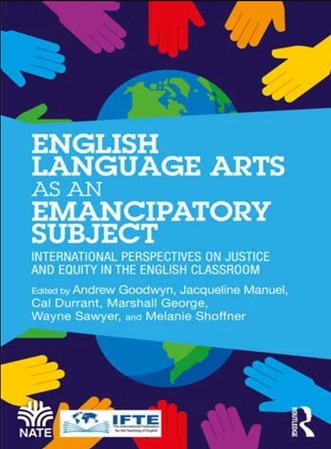 | Recovering truth-seeking ethical pedagogies for the Literature classroom in a post-truth ageIn Durrant, C., George, M., Goodwyn, A., Manuel, J., Sawyer, W., & Shoffner, M. (Eds.), International perspectives on English as an emancipatory subject: Promoting equity, justice, and democracy through English [IFTE volume 5] (pp. 220-231). New York : Routledge. |
 | Adopting an Integrated Approach to Oracy Development in Singapore’s Primary ClassroomsIn Choo, S. S., Liu, W. C., & Chua, B. L. (Eds.). (2024). Taylor & Francis. (Eds.), Developing Future-ready Learners for a Global Age: Pedagogical Innovations in Singapore (pp. 225-238). Singapore : Routledge. By Kiren Kaur |
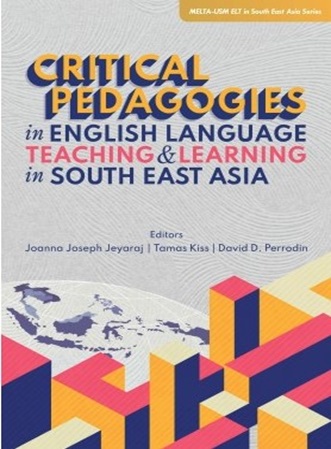 | Challenging Uncritical Literacy in South East Asia by Remixing ELT Materials DesignIn Joanna Joseph Jeyaraj, Tamas Kiss & David D. Perrodin (Eds). (2024). Critical Pedagogies in English Language Teaching and Learning in South East Asia. |
 | Directed Viewing-thingking activity as a Critical Pedagogical Strategy in Language ClassroomIn Joanna Joseph Jeyaraj, Tamas Kiss & David D. Perrodin (Eds). (2024). Critical Pedagogies in English Language Teaching and Learning in South East Asia. By Yeo Kah Sin Dennis |
 | Recovering truth-seeking ethical pedagogies for the Literature classroom in a post-truth ageIn Goodwyn, A., Durrant, C., George, M., Manuel, J., Sawyer, W., & Shoffner, M. (Eds.). (2024). English Language Arts as an Emancipatory Subject: International Perspectives on Justice and Equity in the English Classroom (1st ed.). Routledge. By Farah Fazirah Vierra & Suzanne Choo |
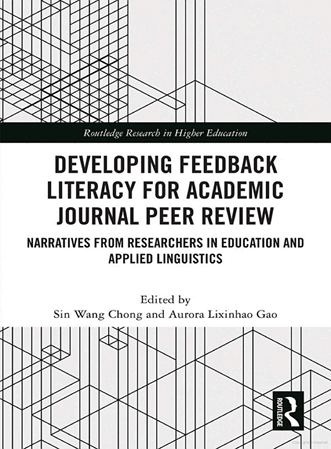 | A critical review of scholarly peer review research from feedback literacy perspective from 2000 to 2022In Chong, S.W., & Gao, A.L. (Eds.), Developing Feedback Literacy for Academic Journal Peer Review: Narratives from Researchers in Education and Applied Linguistics (1st ed.). Routledge. |
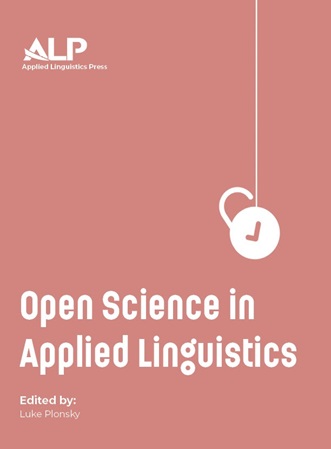 | The Role of Journals and Journal Editors in Fostering a Culture of Open ScienceIn Plonsky, L. (Ed.) (2024). Open science in applied linguistics. Applied Linguistics Press.
|
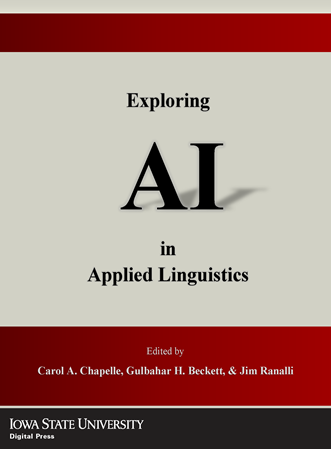 | The Utility of Generative Artificial Intelligence in Rating Interpreters’ Accuracy: A Case Study of ChatGPT-4In C. A. Chapelle, G. H. Beckett, & J. Ranalli (Eds.), Exploring artificial intelligence in applied linguistics Jia Yichen & Vahid Aryadoust |
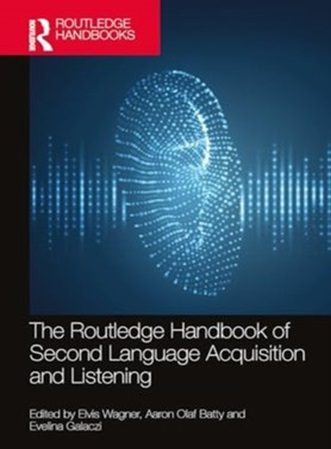 | Listening And Theories Of Second Language AcquisitionIn Wagner, E., Batty, A.O., & Galaczi, E. (Eds.). (2024). The Routledge Handbook of Second Language Acquisition and Listening (1st ed.). Routledge. By Vahid Aryadoust, Liu Tingting & Maria Hidayati
|
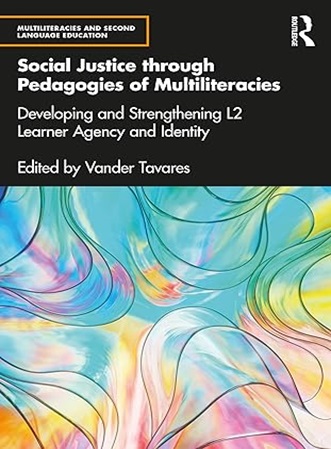 | Multiliteracies and Student-Created Materials DesignIn Tavares, V. (Ed.). (2024). Social Justice through Pedagogies of Multiliteracies: Developing and Strengthening L2 Learner Agency and Identity (1st ed.). Routledge. By Ken Mizusawa & Tamas Kiss |
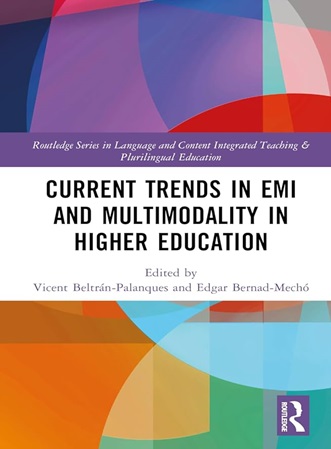 | The multimodal turn in higher educationIn Beltrán-Palanques, V., & Bernad-Mechó, E. (Eds.). Current Trends in EMI and Multimodality in Higher Education (1st ed.). Routledge. |
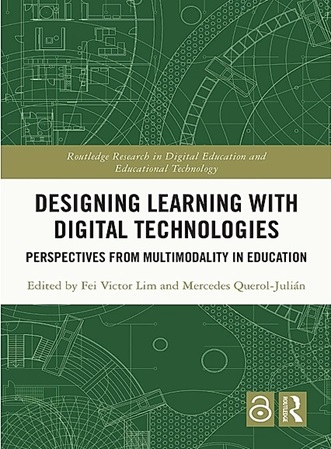 | Learning with technologies in the digital age: Now and the futureIn F.V. Lim & M. Querol-Julián (Eds.). Designing learning with digital technologies: Perspectives from multimodality. Routledge. London & New York. By Victor Lim Fei & Mercedes Querol-Julián |
 | Developing a pedagogic metalanguage for primary students’ learning and engagement with hypermediaIn F.V. Lim & M. Querol-Julián (Eds.). Designing learning with digital technologies: Perspectives from multimodality. Routledge. London & New York. By Styliani Karatza & Victor Lim Fei |
 | Designing for collaborative critical reading online with WiREAD+In F.V. Lim & M. Querol-Julián (Eds.). Designing learning with digital technologies: Perspectives from multimodality. Routledge. London & New York. By Elizabeth Koh, Victor Lim Fei & Christin Jonathan |
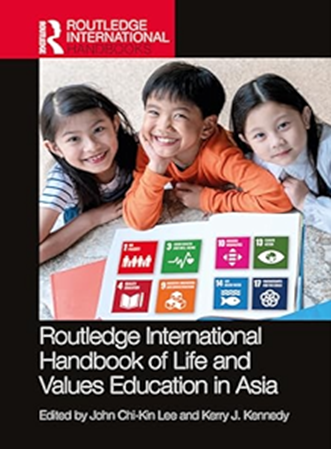 | Applying Chinese Ethical Criticism in the Teaching of Stories for Moral EducationIn Lee, J.C.-K., & Kennedy, K.J. (Eds.). (2024). The Routledge International Handbook of Life and Values Education in Asia (1st ed.). Routledge. By Suzanne Choo |
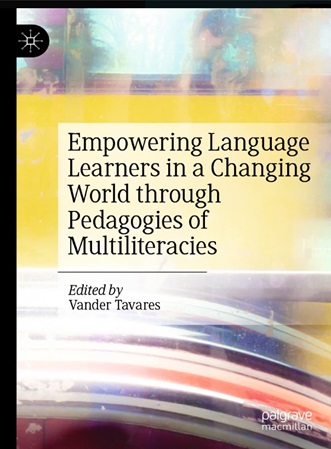 | Multimodality and Learning: Desiderata for Designing Social FuturesIn: Tavares, V. (eds) Empowering Language Learners in a Changing World through Pedagogies of Multiliteracies. Palgrave Macmillan, Cham. |
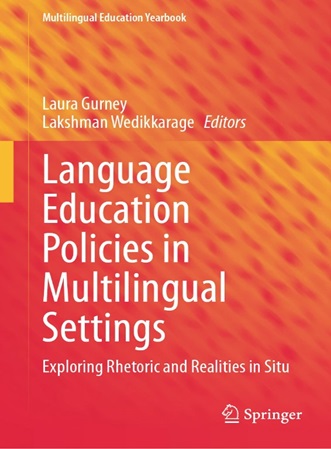 | Medium of Instruction and Language Learning in Bi- and Multilingual Hong Kong and SingaporeIn: Gurney, L., Wedikkarage, L. (eds) Language Education Policies in Multilingual Settings. Multilingual Education Yearbook. Springer, Cham. |
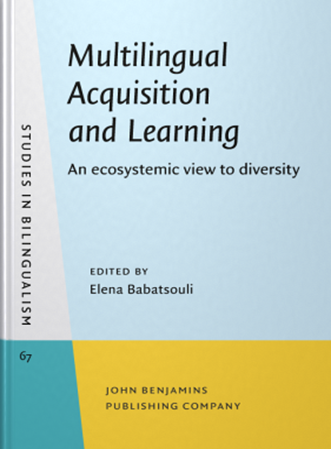 | Early phonological acquisition in multi-accent contextsIn E. Babatsouli (Ed.), Multilingual acquisition and learning: Towards an ecosystemic view to diversity. John Benjamins Publishing Company. By Jasper Sim Hong & Brechtje Post |
 | My fingers Emit sparks of fire: William Blake, Letter WriterIn Crosby, M., & McQuail, J. (Eds.). William Blake's Manuscripts: Praxis, Puzzles, and Palimpsests. Basingstoke : Palgrave Macmillan. |
.jpg?sfvrsn=b5320c31_1) | Afterword: EFL writing teacher education and professional development: Voices from underrepresented contextsIn E. Ene, B. Gilliland, S.H. Lee, T., Saenkhum, T., & L. Seloni (Eds.), EFL writing teacher education and professional development: Voices from under-represented contexts. Multilingual Matters. By Icy Lee |
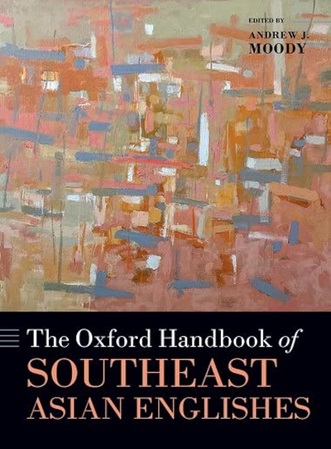 | English-language literature of SingaporeIn Moody, A. J. (Ed.). The Oxford Handbook of Southeast Asian Englishes. Oxford University Press. |
 | English language education and educational policy in SingaporeIn Moody, A. J. (Ed.). The Oxford Handbook of Southeast Asian Englishes. Oxford University Press. By Wendy D. Bokhorst-Heng & Rita Elaine Silver |
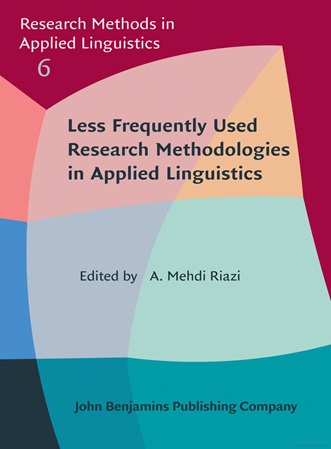 | Multimodality: A systemic-functional semiotic perspectiveIn Riazi, A. Mehdi (ed.), Less Frequently Used Research Methodologies in Applied Linguistics. John Benjamins Publishing Co. By Chen Yixiong, Csilla Weninger & Victor Lim Fei |
 | Applying multimodal analysis: Embodied teaching and textbook analysisIn Riazi, A. Mehdi (ed.), Less Frequently Used Research Methodologies in Applied Linguistics. John Benjamins Publishing Co. By Csilla Weninger , Victor Lim Fei, & Chen Yixiong |
 | Multiliteracies in Singapore English-Language Classrooms: Developing a Pedagogic Metalanguage for MultimodalityIn Zapata, G.C., Kalantzis, M., & Cope, B. (Eds.), Multiliteracies in International Educational Contexts: Towards Education Justice (1st ed.). Routledge. |
 | Pedagogy: Examining Students' Critical-Ethical Interruptions of Racial Discourse in Singapore Literature ClassroomsIn Raja, M.A., & Lu, N.T.C. (Eds.). (2023). The Routledge Companion to Literature and Social Justice (1st ed.). Routledge. By Dominic Nah & Suzanne Choo |
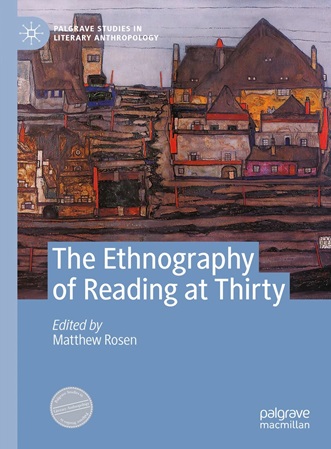 | Reading as Self-making: Using Mobile Ethnography to Examine the Contemporary Literate Practices of Middle-Class Adolescent Girls in SingaporeIn Rosen, M. (eds) The Ethnography of Reading at Thirty. Palgrave Studies in Literary Anthropology. Palgrave Macmillan, Cham. By Loh Chin Ee |
 | Empowering Students Through Cosmopolitan Literacies: Pedagogical Examples from Classrooms in Confucian Heritage CulturesIn Lee, W.O., Brown, P., Goodwin, A.L., Green, A. (eds) International Handbook on Education Development in the Asia-Pacific. Springer, Singapore. By Suzanne Choo & Sharon Y. S. Quek |
 | Enabling Sustainable Success: Lessons from SingaporeIn Lee, W.O., Brown, P., Goodwin, A.L., Green, A. (eds) International Handbook on Education Development in the Asia-Pacific. Springer, Singapore. By Low Ee Ling |
 | Methodological considerations in researching teachers' views and practices of media literacyIn Fastrez, P., & Landry, N. (Eds.), Media Literacy and Media Education Research Methods: A Handbook (1st ed.). Routledge. By Csilla Weninger & Wei Jhen Liang |
 | The power of teacher narrative: Critical incidents as an impetus for teacher professional developmentIn Gui, D.A.F., & Wong, D. (Eds.). The Power of Storytelling in Teaching Practices: Narratives from Hong Kong and Afar (1st ed.). Routledge. |
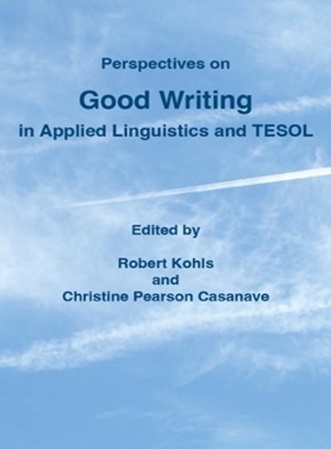 | My experience with second language writing as a nonnative speaker of English: Struggles, successes, setbacks, and lessons learnt about ‘good’ writingIn R. Kohls & C.P. Casanave (Eds.), Perspectives on good writing in applied linguistics and TESOL. University of Michigan Press. By Icy Lee |
 | Top Ten Characteristics of 21st Century English Language TeachersIn L. England, L. D. Kamhi-Stein, & G. Kormpas (Eds.), English language teacher education in changing times: Perspectives, strategies, and new ways of teaching and learning (pp. 37–49). Routledge. By Willy Renandya & George M. Jacobs |
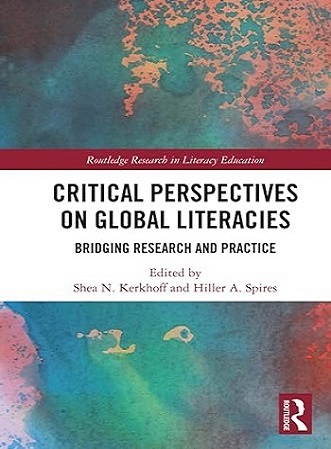 | Doing justice to the other: Developing cosmopolitan dispositions through critical-ethical pedagogies in global literacies educationIn S. N. Kerkhoff & H. A. Spires (Eds.), Critical perspectives on global literacies: Bridging research and practice (pp. 91–105). Routledge. By Suzanne Choo |
 | EMI in South-East AsiaIn C. Griffiths (Ed.), The practice of English as a medium of Instruction (EMI) around the world (pp. 113–131). Springer. By Fenty Lidya Siregar, Robbie Lee Sabnani & Thuy Dinh |
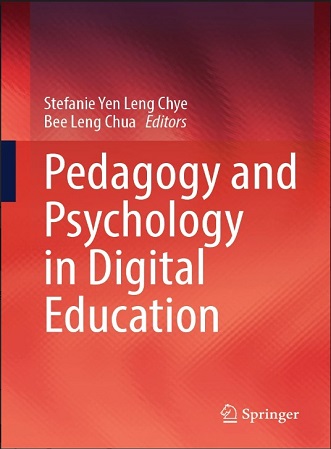 | Man–Machine Partnership to Support Remote Peer Tutoring—Psychological, Pedagogical, and Technological Considerations for the Development of a Mobile ApplicationIn S. Y. L. Chye & B. L. Chua (Eds.), Pedagogy and psychology in digital education (pp. 121-135). Springer. By Seng Chee Tan, Yin Ling Cheung, Chee Kit Looi, Sheng Hung Chung, Starion Junhan Lim & Wai Hoe Wong |
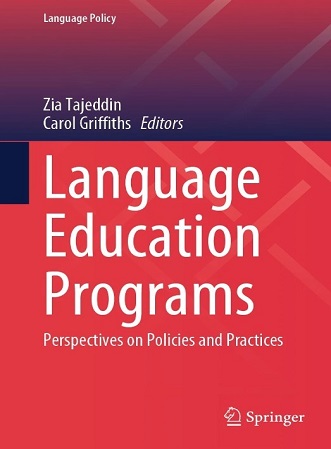 | Language Programme EvaluationIn Z. Tajeddin & C. Griffiths (Eds.), Language education programs: Perspectives on policies and practices (pp. 37-52). Springer. By Jason Loh, Willy A. Renandya, Elizabeth Pang & Vahid Aryadoust
|
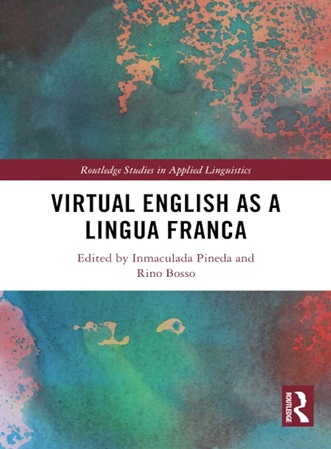 | Designing synchronous online learning experiences with social media as semiotic technologiesIn Pineda, I., & Bosso, R. (Eds.), Virtual English as a Lingua Franca (1st ed.). Routledge. |
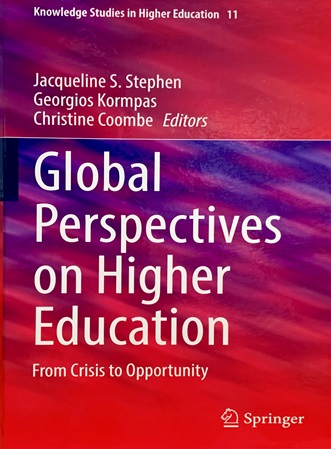 | Novel times call for novel ways: effective teaching and learning in digital learning environmentsIn Stephen, J.S., Kormpas, G., Coombe, C. (eds) Global Perspectives on Higher Education. Knowledge Studies in Higher Education, vol 11. Springer, Cham. By Alexius Chia & Shanti Divaharan |
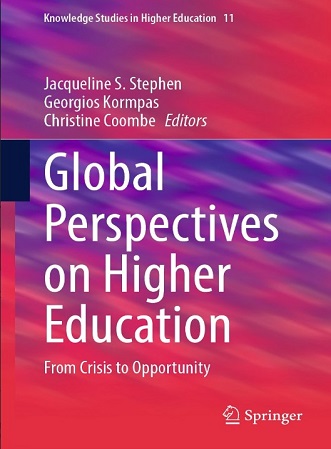 | Responding to the New Normal: Strengthening Student Identity DevelopmentIn: Stephen, J.S., Kormpas, G., Coombe, C. (eds) Global Perspectives on Higher Education. Knowledge Studies in Higher Education, vol 11. Springer, Cham. |
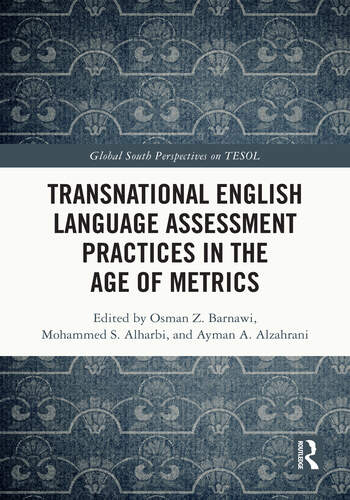 | Current trends and future directions in English language assessment practices in the transnational world: A synthesis of recent researchIn Barnawi, O. Z., Alharbi, M. S., & Alzahrani, A. A. (Eds.), transnational English Language Assessment Practices in the age of metrics. Oxon: Routledge. By Ng Chiew Hong, Cheung Yin Ling & Zhang Hui |
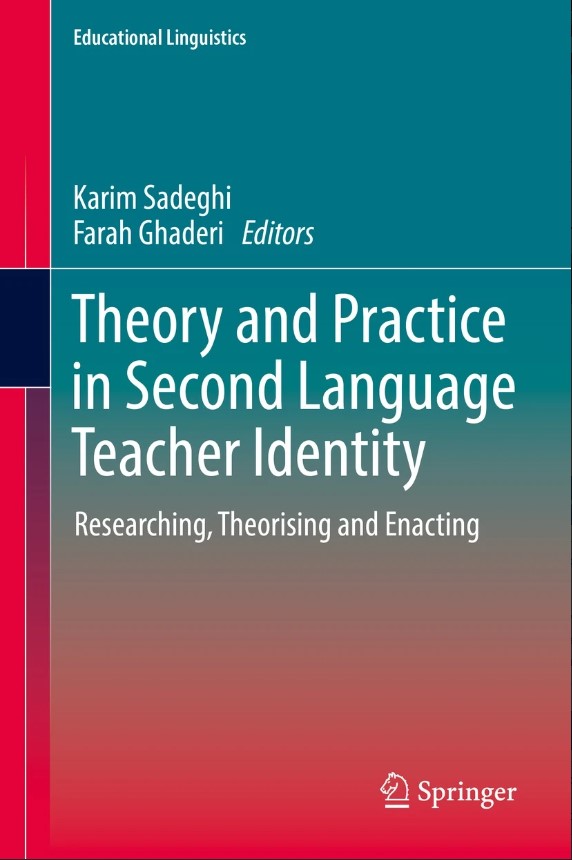 | Second Language Teacher Identity: A Synthesis of Reflections from Applied LinguistsIn: Sadeghi, K., Ghaderi, F. (eds) Theory and Practice in Second Language Teacher Identity. Educational Linguistics, vol 57. Springer, Cham. |
 | Researching English language assessment practices in a transnational world: Critical review and outlookIn Barnawi, O. Z., Alharbi, M. S., & Alzahrani, A. A. (Eds.), transnational English Language Assessment Practices in the age of metrics. Oxon: Routledge. By Zhang Weiyu & Cheung Yin Ling |
 | Intercultural communication in YouTubers’ gameplay video: A social semiotic perspectiveIn U. Schroeder, E. Adami., & J. Daily-O'Cai (Eds.), Multimodal communication in intercultural communication (PP. 213-241). London: Routledge. By Toh Weimin, Victor Lim Fei, & Elisabetta Adami |
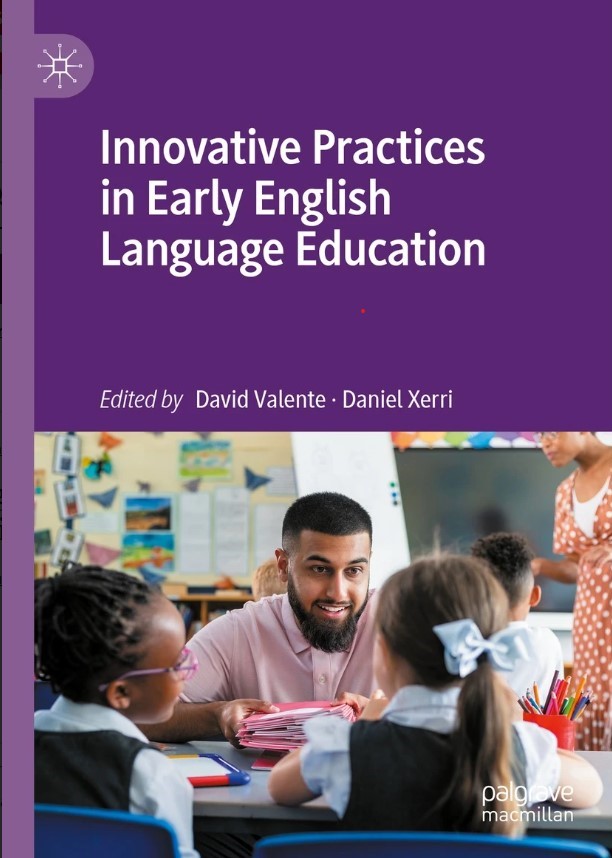 | Mainstreaming Metacognitive Practices in Primary English Teacher Education ProgrammesIn Valente, D., Xerri, D. (Ed.), Innovative Practices in Early English Language Education(PP. 285-304). Springer Nature: Palgrave Macmillan Cham. |
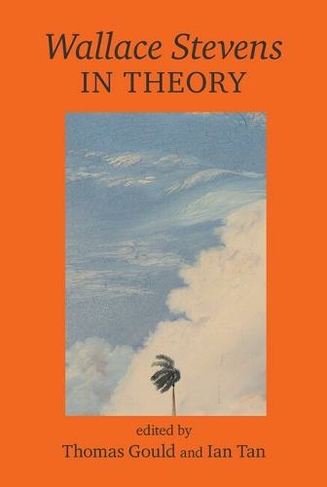 | The Event in Stevens as Poetic Justification: Alain Badiou, Poetic Performativity, and the Implied ReaderIn Tan, I. (Ed.), Wallace Stevens in Theory(PP. 47-60). Liverpool: Liverpool University Press. |
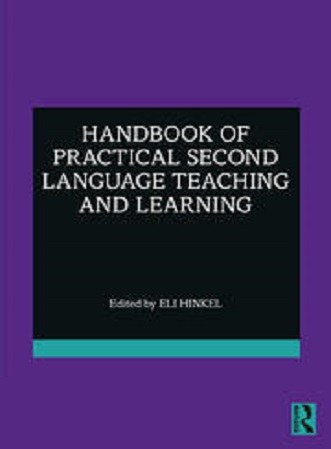 | Teaching speaking in L2 contextsIn E. Hinkel (Ed.), Handbook of practical second language teaching and learning (pp. 269–280). Routledge. By Willy A. Renandya & Minh Thi Thuy Nguyen |
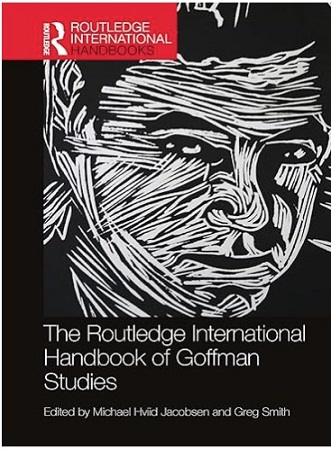 | Goffman and sociolinguisticsIn M. H. Jacobsen & G. Smith (Eds.), The Routledge international handbook of Goffman studies (pp. 219–230). Routledge. By Csilla Weninger & J. Patrick Williams |
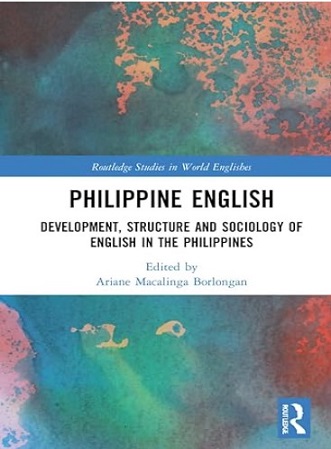 | PhonologyIn A. M. Borlongan (Ed.), Philippine English: Development, structure, and sociology of English in the Philippines (pp. 49-72). Routledge. By Irwan Shah Shahruddin, Ao Ran & Low Ee Ling |
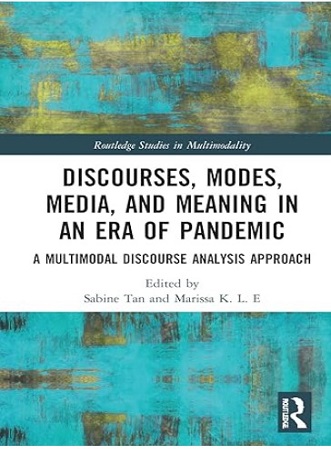 | Design considerations for digital learning during the COVID-19 pandemicIn S. Tan & M. E. K. Lin (Eds.), Modes, media and meaning in an era of pandemic: A multimodal discourse analysis approach (pp. 69–88). Routledge. By Fei Victor Lim & Weimin Toh |
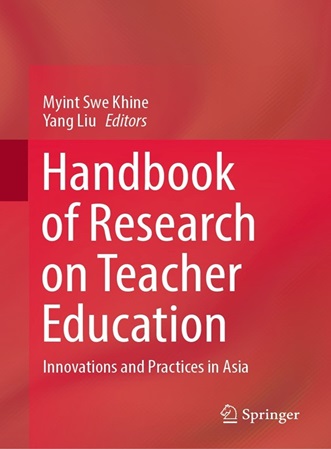 | Teacher Education in Singapore: Changes for a New LandscapeIn Khine, M.S., Liu, Y. (eds) Handbook of Research on Teacher Education. Springer, Singapore. |
 | Problematising e-pedagogiesIn J. K. H. Pun, S. Curle, & D. Yuksel. (Eds.), The use of technology in English medium education (pp. 177–189). Springer. |
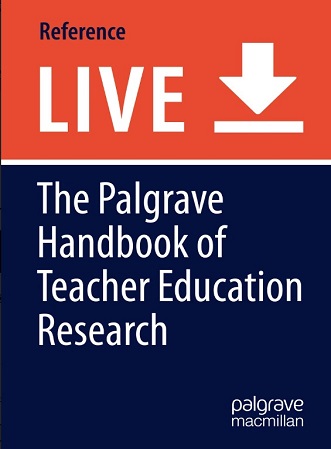 | Reframing Global Education in Teacher Education from the Perspectives of Human Capability and Cosmopolitan EthicsIn I. Menter (Ed.), The Palgrave handbook of teacher education research (pp. 1-24). Palgrave Macmillan. By Suzanne Choo |
 | Introduction to the Volume: Mapping the Language-Related Knowledge Base for Content TeachingIn L. H. Seah, R. E. Silver, & M. C. Baildon (Eds.), The role of language in content pedagogy: A framework of teachers’ knowledge (pp. 1-19). Springer. By Lay Hoon Seah, Rita Elaine Silver & Mark Charles Baildon |
 | Unpacking the Language-Related Knowledge Components of Science Teachers Through the Language Awareness LensIn L. H. Seah, R. E. Silver, & M. C. Baildon (Eds.), The role of language in content pedagogy: A framework of teachers’ knowledge (pp. 23-44). Springer. By Lay Hoon Seah & Rita Elaine Silver |
 | Raising Science Teachers’ Language Awareness: A Functional Literacy Approach to Teaching ScienceIn L. H. Seah, R. E. Silver, & M. C. Baildon (Eds.), The role of language in content pedagogy: A framework of teachers’ knowledge (pp. 45-60). Springer. By Jonathon Adams & Fei Victor Lim |
Journal Articles
.jpg?sfvrsn=44e72c73_1) | Student engagement with written feedback: Critical issues and way forwardBy: Mao Zhicheng & Icy Lee |
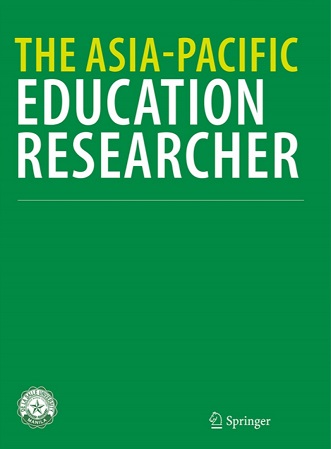 | Perspectives on potential plagiarism triggered by AI among Chinese University studentsBy: Cong Zhang, Xinyu Ma & Icy Lee |
.jpg?sfvrsn=9529e321_1) | Emotional (dis/un)entanglement in becoming an academic in the neoliberal era: Dialogising transnational accounts of being, thinking and feeling.By: Mahtab Janfada, Angel M. Y. Lin, Victor Lim Fei, Jiajia Eve Liu |
 | Repositioning English language teacher education for global competence and local realities: Adopting the cline of glocalityBy: Low Ee Ling |
 | The contemporary novel’s containment of multitudes: Poetic citation and intertextual framing in Ian McEwan’s Saturday and Michael Cunningham’s Specimen Days |
 | Grammar as a meaning‐making resource: Fostering meaningful, situated literacy development |
.jpg?sfvrsn=1d705fa9_1) | Digital resistance against linguistic invisibility: Discursive positionings of resistance in the #PRO-Cantonese movement on DouyinBy Xu Huimin & Csilla Weninger |
.jpg?sfvrsn=2f50d4a8_1) | The timing of corrective feedback in second language learning. LanguageBy Shaofeng Li, Ling Ou & Icy Lee |
.png?sfvrsn=cb72c9f3_1) | Two views of Anglophone Southeast Asia: The Heinemann writing in Asia series and Skoob Pacifica |
.jpeg?sfvrsn=757a476a_1) | A comparative critical analysis of official and personal social media videos on being and becoming old in ChinaBy Teo Chin Soon, Peter & Cui Ruiguo |
.jpeg?sfvrsn=117aa548_1) | Why are some articles highly cited in applied linguistics? A bibliometric study.By Zhang Sai & Vahid Aryadoust |
 | Navigating the third culture: Comparative case studies of Japanese expatriate students in Singapore and factors influencing English language developmentBy Chang Qizhong & Lim Si Wei |
.jpg?sfvrsn=d6dc78df_1) | The Potential and Implications of AI-Generated Feedback for Primary School Composition WritingBy Chang Qizhong & Zoey Chow |
.jpg?sfvrsn=44e72c73_1) | Educational context and teacher beliefs matter: Multimodal literacy in the Greater Bay Area of ChinaBy Jiajia Eve Liu & Victor Lim Fei |
.jpg?sfvrsn=abf16053_1) | The future of TESOL with multimodality
|
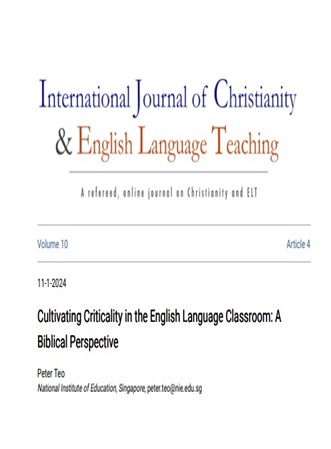 | Cultivating criticality in the English language classroom: A biblical perspective |
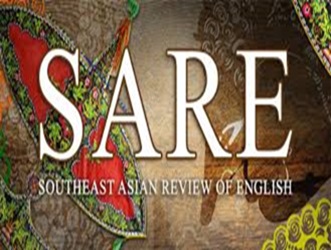 | An interview with Malaysian writer Malachi Edwin Vethamani
|
.jpg?sfvrsn=1e74f939_1) | Enhancing writing journey: An interview with Professor Icy LeeBy Icy Lee |
.jpg?sfvrsn=705a3f82_1) | Teaching with Christian Faith in Secular SettingsBy Icy Lee |
.jpg?sfvrsn=b8206536_1) | An eye-tracking and neuroimaging study of negative wording effects on cognitive load in a metacognitive awareness toolBy Wang Xinhe & Vahid Aryadoust |
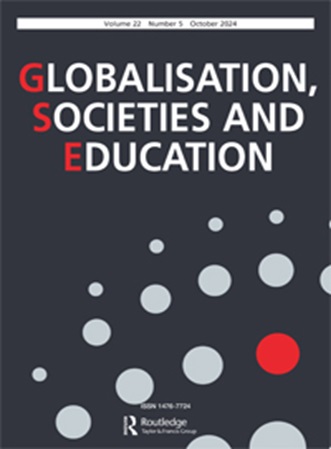 | Edward Said’s theorisations of secular criticism as a foundation for post-critical criticismBy Suzanne Choo |
.jpg?sfvrsn=8796851e_1) | Feedback over grades: Enhancing learning through ungradingBy Icy Lee |
.jpg?sfvrsn=74149d4e_1) | A meta-analysis of the reliability of second language reading comprehension assessment toolsBy Zhao Huijun &Vahid Aryadoust |
.jpg?sfvrsn=10eaecac_1) | A systematic review of differential item functioning in second language assessmentBy Xueliang Chen, Vahid Aryadoust & Wenxin Zhang |
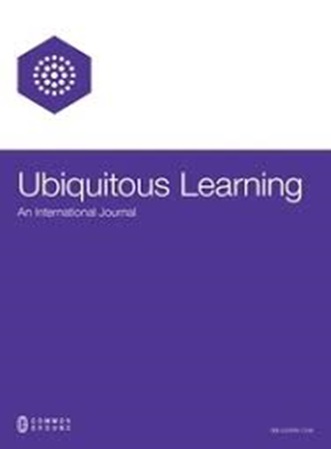 | Generative AI and literacy development in the language classroom: A systematic review of literatureBy Pragya Chandel & Victor Lim Fei |
.jpg?sfvrsn=10eaecac_1) | An automatized semantic analysis of two large-scale listening tests: A corpus-based studyBy Zhao Yufan & Vahid Aryadoust |
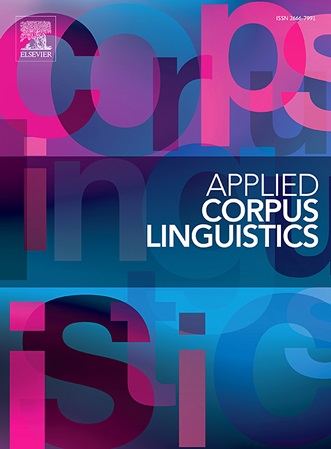 | Investigating the visual content of a commercialized academic listening test: Implications for validityBy Huo Zhuohan, Vahid Aryadoust & Azrifah Zakaria |
.jpg?sfvrsn=5f84e938_3) | Emerging trends in Singapore English research: A commentaryBy Low Ee Ling |
.jpg?sfvrsn=c2da827b_3) | Educational evaluation research in Asia: A scoping reviewBy Loh Kok Khiang Jason, Wan Har Chong & Christina Lim-Ratnam |
.jpg?sfvrsn=c2da827b_3) | Teaching from the heart: An evaluation of award-winning teachers in Singapore |
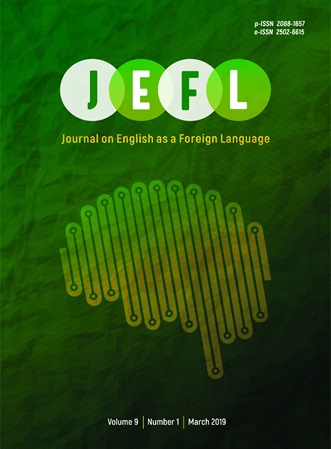 | Does academic writing coaching with genre pedagogy work with teachers? A case study of public school teachers in West Kalimantan, IndonesiaBy Aunurrahman Aunurrahman, Jo-Ann Netto-Shek, Dedi Irwan & Muhammad Iqbal Ripo Putra |
.jpg?sfvrsn=c2da827b_3) | Assessing multiliteracies: a systematic review and a perspective from SingaporeBy Victor Lim Fei, Toh Weimin & Matthew Ong |
.jpg?sfvrsn=e5ad4c3c_3) | For what and for whom? expanding the role of research syntheses for diverse stakeholdersBy Rita Silver, Vinay Kumar, Deborah Chua Fengyi, Michael Tan Lip Thye & Johannis Auri Bin Abdul Aziz |
.jpg?sfvrsn=1ae422b5_3) | Teachers’ changing perspectives of their spatial competencies: A case study of professional learning in SingaporeBy Marian Mahat & Loh Chin Ee |
.jpg?sfvrsn=5f84e938_3) | Singlish in Focus: A Personal View from Downstairs |
.jpeg?sfvrsn=63491fbc_3) | From colonialism to self-determination: A historical study of language testing and institutional policy |
.jpg?sfvrsn=5f84e938_3) | Variation in VOT in English child-directed speech of English-Mandarin and English-Malay early bilinguals in Singapore |
.jpg?sfvrsn=59ac0863_3) | The predictive value of gaze behavior and mouse-clicking in testing listening proficiency: A sensor technology studyBy Qiu Yue & Vahid Aryadoust |
.jpg?sfvrsn=5f84e938_3) | English language preservice teachers’ attitudes towards Singlish and their beliefs about the utility of contrastive pedagogies in the language classroomBy Joshua Lim & Norhaida Aman |
.jpg?sfvrsn=e4a98cea_3) | Let a hundred flowers bloom: Towards a coexistence of paradigms in language assessment literacy |
.jpg?sfvrsn=fd7115f0_3) | Prosthetic memory and textual inheritance: Reading Nicole Krauss’s The History of Love with Bernard Stiegler |
.jpg?sfvrsn=6f68c84d_3) | Supporting social inclusion of refugees: A funds of knowledge approachBy Chan Ivy & Teo Chin Soon Peter |
.jpg?sfvrsn=5f84e938_3) | Singapore English in the Singapore linguistic landscape |
.jpg?sfvrsn=af31cfa0_1) | 'I use the library sometimes just to lose myself': School libraries supporting students' wellbeing and flourishingBy Loh Chin Ee & Amanda Louise Binny |
.jpg?sfvrsn=8681719c_1) | Young Chinese language learners’ L2 motivational self system and learning achievement in Chinese literacy acquisitionBy Wong Yu Ka, Lau Kit Ling & Icy Lee |
.jpg?sfvrsn=7e895c12_1) | The future of written corrective feedback researchBy Icy Lee |
.jpg?sfvrsn=3588a448_3) | Knowledge structures for knowledge communication: Dominant semantic frames in research articlesBy Chen Lang & Csilla Weninger |
.jpg?sfvrsn=f1da65bc_3) | Orchestrating teacher, peer, and self-feedback to enhance learners’ cognitive, behavioral, and emotional engagement and public speaking competenceBy Liu Tingting & Vahid Aryadoust |
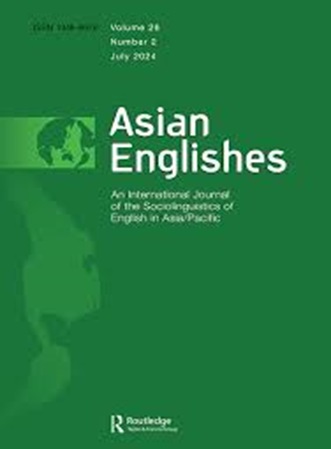 | The national press & its framing of Singlish: Print media as a language planning and policy toolBy Emma Koh & Loh Kok Khiang Jason |
.jpg?sfvrsn=974b3c12_3) | Global Englishes language teaching: Implications for feedback in EAL writingBy Xiao Caiwang & Icy Lee |
.jpg?sfvrsn=974b3c12_3) | Engaging with text: Strategies for critical reading in TESOL assignmentsBy Willy Renandya, Nguyen Thi Thuy Minh & George M Jacobs |
‘Where are we?’: The ghost as interrogative haunting in the others | |
.jpg?sfvrsn=a8f180d6_3) | A Meta-Analysis of the Reliability of Second Language Listening Tests (1991–2022)By Shang Yuxin, Vahid Aryadoust & Hou Zhuohan |
.jpg?sfvrsn=34b67244_1) | To cure sometimes, to relieve often, to publicise always: A case study of linguistic medicine landscapes in a (post)pandemic eraBy Wu Ying & Rita Silver |
.jpg?sfvrsn=8714351d_3) | Transitioning from communicative competence to multimodal and intercultural competencies: A systematic reviewBy Khomeshwaree Mootoosamy & Vahid Aryadoust |
.jpg?sfvrsn=3a8c6f1a_3) | Conceptualizing multimodal feedback literacy for L2 writing teachers in the digital ageBy Jiang Lianjiang, Icy Lee & Yu Shulin
|
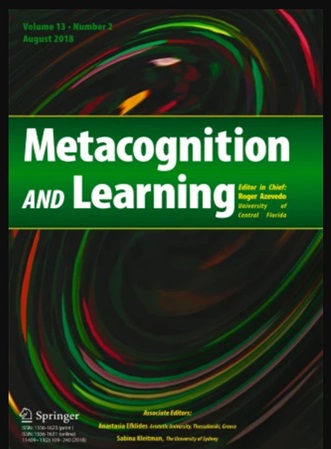 | A meta-analysis of the reliability of a metacognitive awareness instrument in second language listeningBy Zhai Jiayu & Vahid Aryadoust |
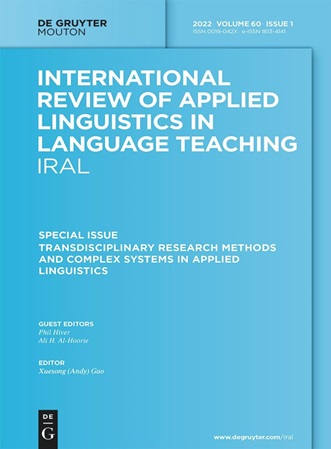 | Impact of task type and task complexity on negotiation of meaning in young learners of Chinese as a second languageBy Yan Jing & Christine Goh |
.jpg?sfvrsn=e2ee1c44_3) | Digital Social Reading in Second Language Learning and Teaching: Synthesis of Current Research and Pedagogical Practices |
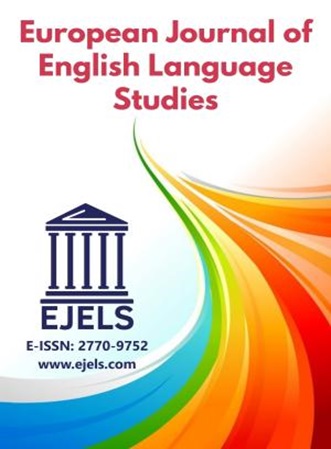 | The Application of Mindset Theories in English Language Education: A Synthesis of Recent Research |
.jpeg?sfvrsn=fe2f8f11_3) | ‘I feel like my awareness grew’: Fostering dialogues to increase awareness through virtual book clubsBy Gan Sujia & Loh Chin Ee |
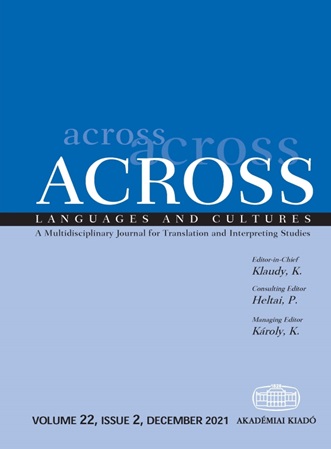 | A systematic review of empirical distance interpreting research (2005–2021)By Zhu Xuelian & Vahid Aryadoust |
.jpg?sfvrsn=2824cbd0_3) | Adolescents' use of digital media during the pandemic: Implications for literacyBy Victor Lim Fei , Loh Chin Ee & Taina Teravainen |
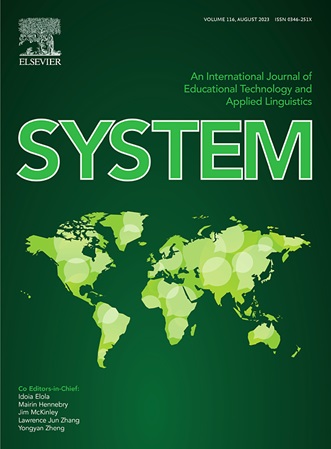 | Is the magic in the mix? The development and validation of the L2 Teachers’ Blended Assessment Literacy ScaleBy Su Xiaoli & Icy Lee |
.jpg?sfvrsn=36fc6536_3) | Traditional Chinese medicine: Communicating informational and symbolic functions in the linguistic landscapeBy Wu Ying, Rita Silver & Guo Libo |
.jpg?sfvrsn=dd95a34e_3) | Microcelebrities’ identity construction on social media: A systematic review and synthesisBy Xu Huimin, Csilla Weninger & Der-Thanq Victor Chen |
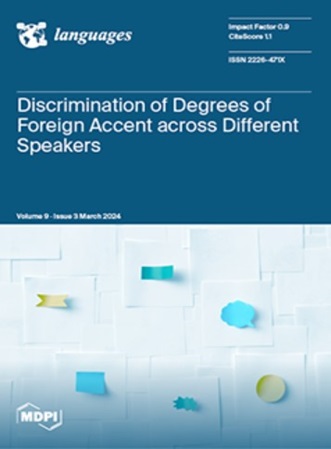 | A Systematic Review of Eye-Tracking Technology in Second Language ResearchBy Xin Hu & Vahid Aryadoust
|
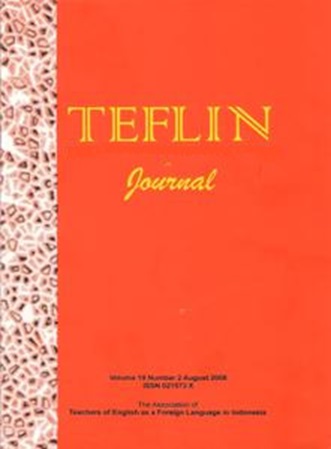 | Learning how to write socially appropriate emails through textbooks: an evaluation of international English textbooksBy Minh Thi Thuy Nguyen, Willy Renandya, Thuy Thi Thanh Pham & Hanh Thi Pham |
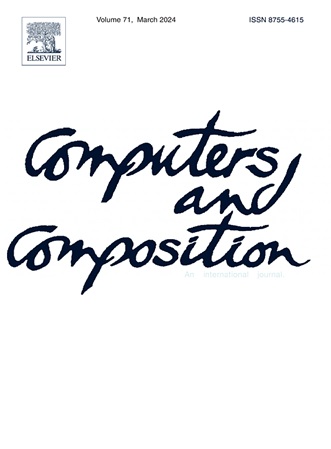 | Does the peer review mode make a difference? An exploratory look at undergraduates' performances and preferences in a writing courseBy Yi-Chin Hsieh, Alvin Ping Leong, Yu-Ju Lin & Vahid Aryadoust |
.jpg?sfvrsn=2e5e06da_3) | What makes adolescents want to read? examining adolescents’ contemporary print and new media (fiction) leisure reading through mobile ethnographyBy Loh Chin Ee |
.png?sfvrsn=32408aaf_3) | Artificial intelligence in English language teaching: Fostering joint enterprise in online communitiesBy Flora Debora Floris, Utami Widiati, Willy Renandya & Yazid Basthomi |
.jpg?sfvrsn=d84425fe_3) | The potential of eye tracking data to strengthen CDA’ explanatory power: The case of multimodal critical discourse analysis of advertising persuasionBy Chen Yixiong & Csilla Weninger |
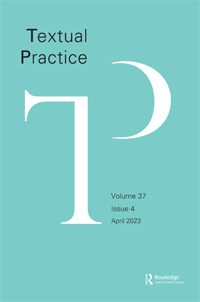 | Speaking (from) out of tradition: Hermeneutics, literary style and the task of textual interpretation in J. M. Coetzee’s Elizabeth Costello (2003) and Julian Barnes’s Elizabeth Finch (2022)By Ian Tan |
 | Strategy instruction and enhancement of young learners' speaking skills |
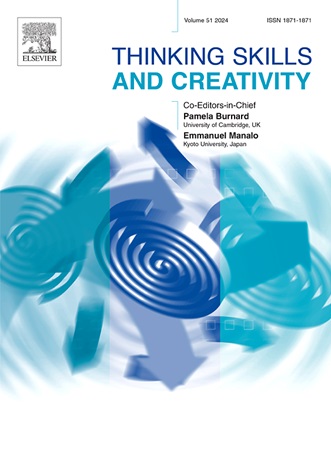 | Being critical and critical being in the language classroom |
Writing assessment and feedback literacy: Where do we stand and where can we goBy Icy Lee & Yu Shulin | |
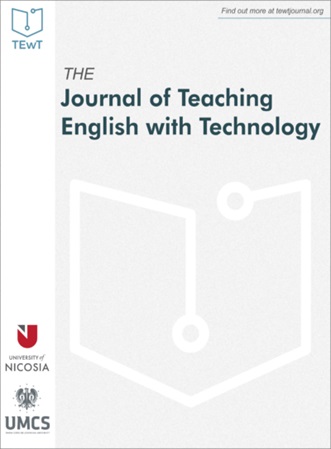 | Apps for English language learning: A systematic reviewBy Victor Lim Fei & Toh Weimin |
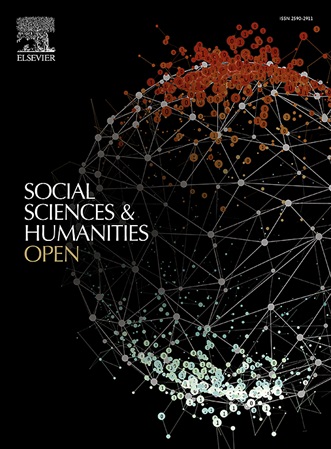 | Engagement with research: A qualitative study of English department teachers’ experiences and insightsBy Flora Debora Floris, Utami Widiati, Willy Renandya & Yazid Basthomi |
.jpeg?sfvrsn=7a5560ea_3) | Not just reading the romance online: adolescent girls’ reading Korean ManhwaBy Loh Chin Ee, Nur Fitri Shazwini Binte Rosli & Maya Ziqing Krishnan |
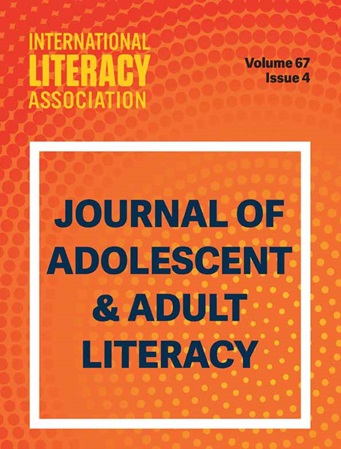 | Hermeneutical justice as the foundation of cosmopolitan literacy in a post‐truth ageBy Suzanne Choo |
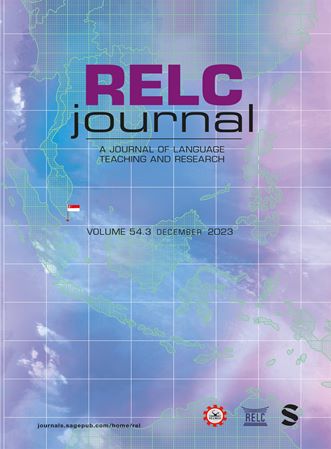 | A coherent reflective framework for second-language writing teacher preparationBy Icy Lee |
.jpg?sfvrsn=2fa8ff87_3) | Commodifying green living: Discourses of class and sustainability in housing estatesBy Teo Shi Ling
|
.jpeg?sfvrsn=291aeda6_3) | A multidimensional analysis of a high-stakes English listening test: A corpus-based approachBy Tao Xuelian & Vahid Aryadoust |
.jpg?sfvrsn=91ce76c3_1) | Written corrective feedback in second language writing: A synthesis of naturalistic classroom studiesBy Mao Zhicheng, Icy Lee & Li Shaofeng |
.jpg?sfvrsn=2767bf4b_3) | Here was once the sea: An anthology of Southeast Asian EcowritingBy Rina Garcia Chua, Esther Vincent Xueming & Ann Ang |
 | Representing youth as vulnerable social media users: A social semiotic analysis of the promotional materials from the social dilemmaBy Liang Wei Jhen & Victor Lim Fei |
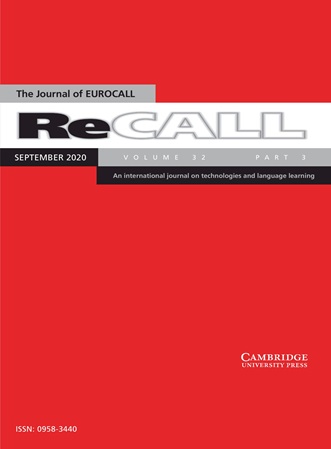 | A systematic review of AI-based automated written feedback researchBy Shi Huawei & Vahid Aryadoust |
.jpg?sfvrsn=33209090_3) | Writing teacher feedback literacy: Surveying second language teachers’ knowledge, values, and abilitiesBy Icy Lee & Mao Zhicheng |
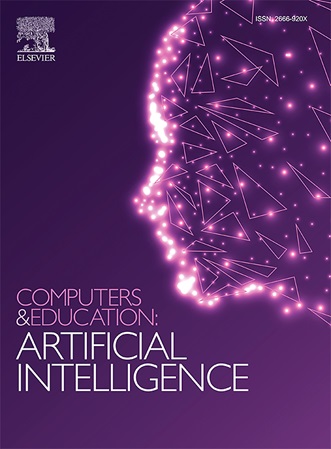 | Investigating the affordances of Open AI’s large language model in developing listening assessmentsBy Vahid Aryadoust, Azrifah Zakaria & Jia Yichen |
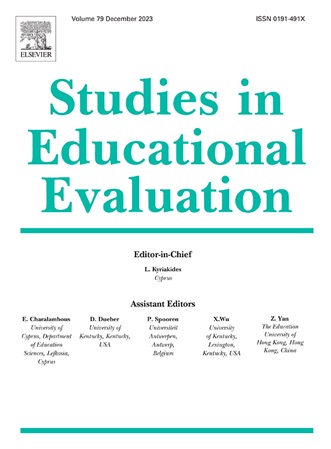 | Investigating differential item functioning across interaction variables in listening comprehension assessmentBy Vahid Aryadoust, Shangchao Min & Xueliang Chen
|
.jpg?sfvrsn=dfb684dd_3) | The multidimensional effects of extensive listening on EFL learnersBy Anna C-S Chang & Willy Renandya |
 | How mind-body-world ecologies work: The use of gestures for idea generation in a Grade 4 composition class |
.jpg?sfvrsn=80875e5a_3) | Taking stock of the research into professional learning communities: Paradigms, pathways, and possibilitiesBy Kwun Man Chiang, Hongbiao Yin, Icy Lee, & Chih Hao Chang |
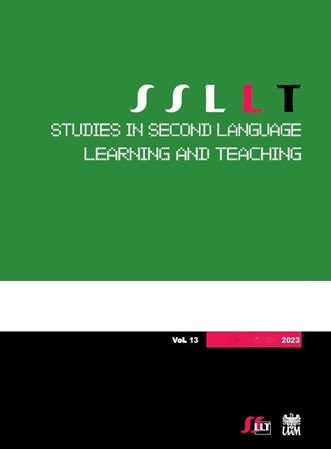 | Bibliometrics and scientometrics in applied linguistics: Epilogue to the special issue |
 | Does modality matter? A meta-analysis of the effect of video input in L2 listening assessmentBy Vahid Aryadoust & Liu Tingting |
 | Harnessing the power of technology in ELTBy Willy Renandya, Francisca Maria Ivone & Maria Hidayati |
.jpg?sfvrsn=df5bd62d_3) | Exploring contradiction‐driven language teacher identity transformation during curriculum reforms: A Chinese taleBy Kailun Wang, Rui Yuan & Icy Lee
|
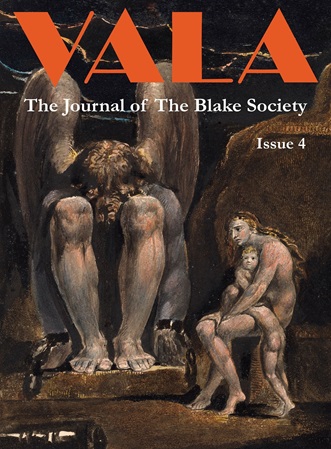 | William Blake's Last Surviving ResidenceBy Angus Whitehead & Catherine Kelly |
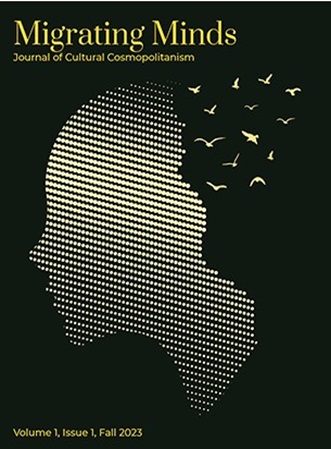 | The cosmopolitan foundations of ethical criticism: Perspectives from the “East” and the “West”By Suzanne Choo
|
 | The ethics of animal excess: Violence and Bataillean vigilance in Ian McEwan’s Black DogsBy Ian Tan |
 | Making space in the library: Considerations for design and furniture choices to support student wellbeingBy Loh Chin Ee |
 | Learners’ cognitive processing problems during comprehension as a basis for L2 listening research |
 | Learners’ reading metacognition and summary writing skills nested in psychological and sociocultural factorsBy Chan, Casuncad Mary Gwyneth & Vahid Aryadoust |
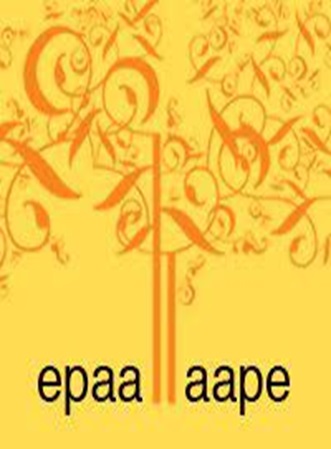 | Education in a democratic and meritocratic society: Moving beyond thriving to flourishingBy Low Ee Ling |
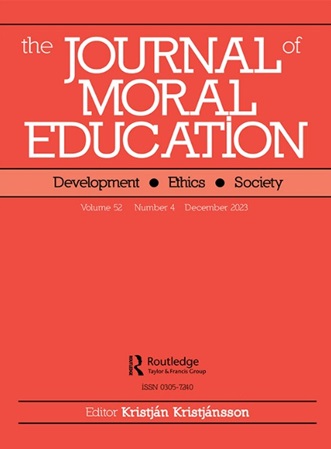 | From moral adaptation to ethical criticism: Analyzing developments in Singapore’s character education programmeBy Suzanne Choo & Deborah Chua |
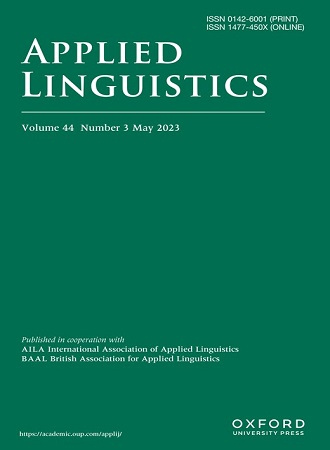 | Topic and accent coverage in a commercialized L2 listening test: Implications for test-takers’ identity |
.jpg?sfvrsn=4fb4f699_3) | Formative Assessment in the English Language Classroom: A Review of Diversity and ComplexitiesBy Kiren Kaur |
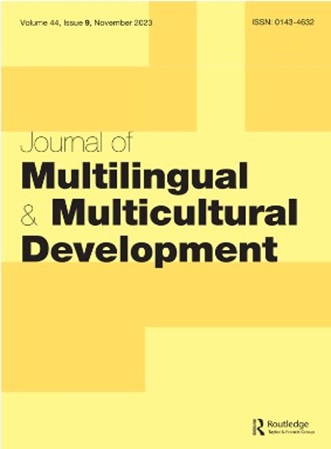 | Home language environment and bilingual acquisition in preschoolers from low-income homes: differential impact of language and literacy related factorsBy Viniti Vaish, Sun Baoqi & L. Quentin Dixon |
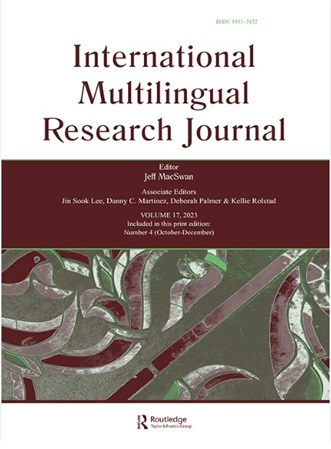 | Identity construction on shop signs in Singapore’s Chinatown: a study of linguistic choices by Chinese Singaporeans and New Chinese immigrantsBy Zhang Hui, Mark Seilhamer & Cheung Yin Ling |
 | The Co-construction of News Values on News Magazine Covers: A Corpus-assisted Multimodal Discourse Analysis (CAMDA)By Zhang Weiyu & Cheung Yin Ling |
 | Authenticating ‘mother tongue’ in a multilingual minority communityBy Wu Ying, Rita Silver & Anwei Feng |
 | The Claim of Ethics: Language and the Other(ness) of the Subject in Emmanuel Levinas and Jacques LacanBy Ian Tan |
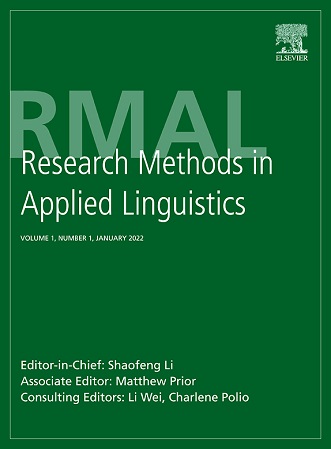 | Applied linguistics journal editor perspectives: Research ethics and academic publishingBy Rita Elaine Silver, Evangeline Lin & Sun Baoqi |
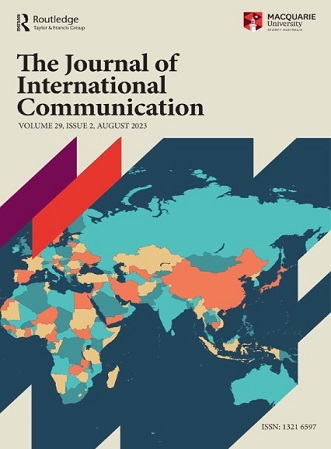 | Commodifying the self: a multimodal analysis of college YouTubers’ first day videosBy Victor Lim Fei & Jerrica Ang |
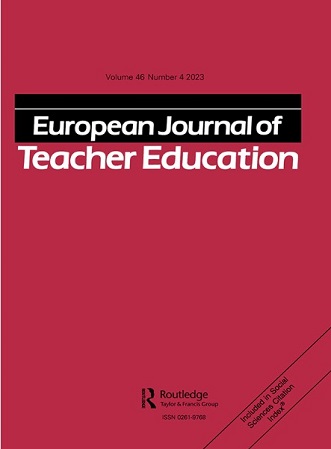 | Reimagining teacher education in Singapore for a changing international landscapeBy Low Ee Ling |
 | Emotion Regulation of EFL Teachers in Blended Classroom AssessmentBy Su Xiaoli & Icy Lee |
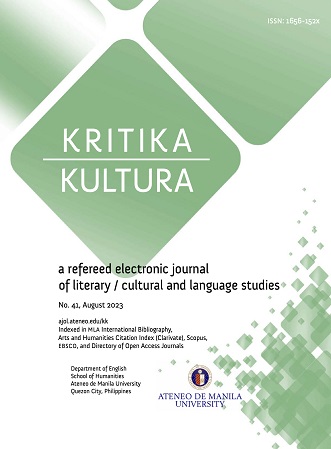 | What’s Tropical about Nick Joaquin’s Tropical Gothic? Heat and Corporeality in “The Summer Solstice” and “The Dying Wanton”By Ann Ang |
 | A Rending and a Raising: Ecstatic Religiosity and Textual Renewal in J. M. Coetzee's Jesus TrilogyBy Ian Tan |
 | Trilingualism, Education and Ethnic Language SubjectivitiesBy Ying Wu & Rita Elaine Silver |
 | The development and validation of a scale on L2 writing teacher feedback literacyBy Icy Lee, Mehmet Karaca & Serhat Inan |
 | Dialogic Instruction in a Chinese EFL Classroom: A Practitioner PerspectiveBy Ruiguo Cui & Peter Teo |
 | Thinking through talk: Using dialogue to develop students’ critical thinkingBy Ruiguo Cui & Peter Teo |
 | Capitalising shadow education: A critical discourse analysis of private tuition websites in SingaporeBy Peter Teo & Dorothy Koh |
 | Influence of caregiver input and language experience on the production of coda laterals by English–Malay bilingual preschoolers in multi-accent Singapore |
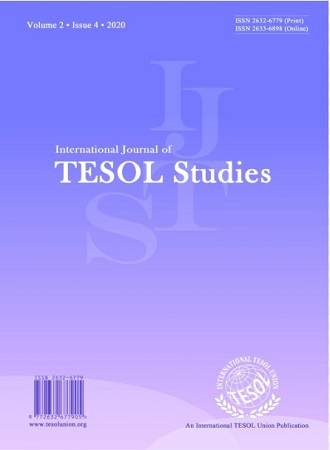 | Beyond Academic Grades: Reflections on My Care for University Students' Holistic Development in SingaporeBy Teo Shi Ling |
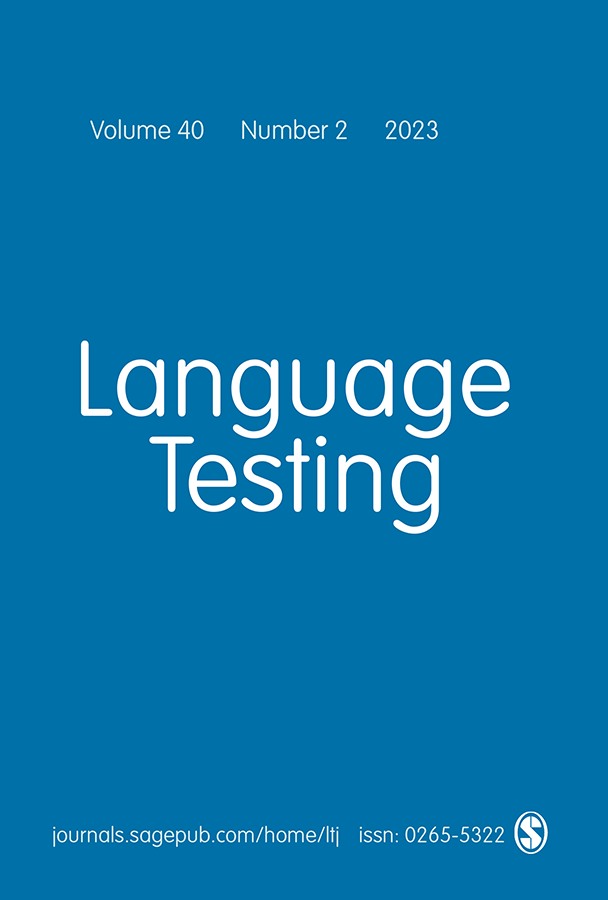 | The vexing problem of validity and the future of second language assessment |
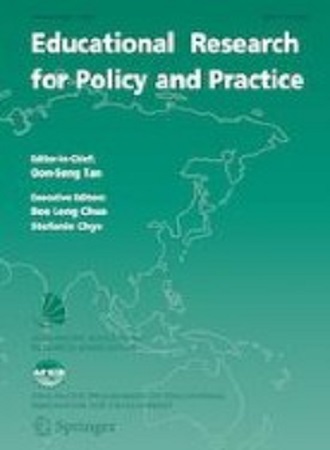 | Implementation of formative assessment in the English language classroom: insights from three primary schools in SingaporeBy Kiren Kaur & Christina Lim-Ratnam |
 | An eye-tracking investigation of the keyword-matching strategy in listening assessmentBy Shermaine Qi En Kho, Vahid Aryadoust & Stacy Foo |
.jpeg?sfvrsn=bbcbb6e1_3) | A systematic review of the validity of questionnaires in second language researchBy Zhang Yifan & Vahid Aryadoust |
 | Investigating the effect of multimodality and sentiments on speaking assessments: A facial emotional analysisBy Joey Jia Qi Chong & Vahid Aryadoust |
 | A Design-Based Research Approach to the Teaching and Learning of Multiliteracies |
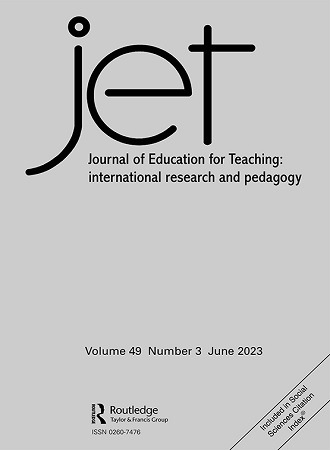 | Mapping the lesson: network graphs and microgenres |
 | ‘If you have the freedom, you don’t need to even think hard’ – considerations in designing for student agency through digital multimodal composing in the language classroomBy Victor Lim Fei & Thi Thu Ha Nguyen |
 | A systematic review of automated writing evaluation within the argument-based validation frameworkBy Shi Huawei & Vahid Aryadoust |
 | A systematic review of authenticity in second language assessmentBy Syazwani Binti Hasrol, Azrifah Zakaria & Vahid Aryadoust |
 | A Synthetic Review of Cognitive Load in Distance Interpreting: Toward an Explanatory ModelBy Zhu Xuelian & Vahid Aryadoust |
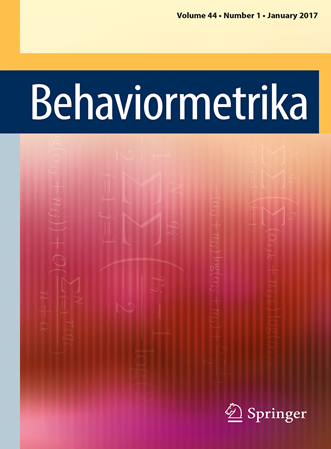 | Neurocognitive evidence for test equity in an academic listening assessmentBy Ester Dominguez Lucio & Vahid Aryadoust |
 | The metacognitive and neurocognitive signature of test methods in academic listening assessmentBy Zhai Jiayu & Vahid Aryadoust |
 | ‘Because I’m always moving’: a mobile ethnography study of adolescent girls’ everyday print and digital reading practicesBy Loh Chin Ee, Baoqi Sun & Victor Lim Fei |
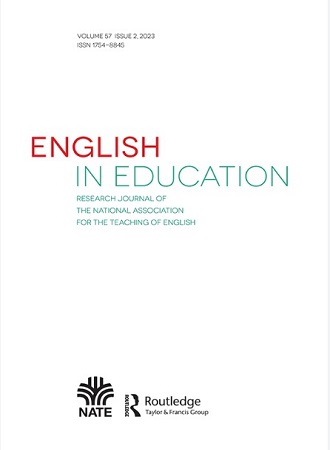 | Multimodal composing in the English classroom: recontextualising the curriculum to learningBy Victor Lim Fei & Len Unsworth |
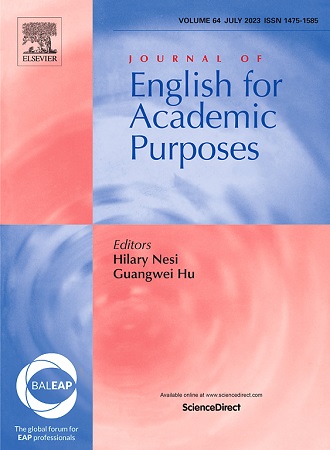 | The use of code glosses in three minute thesis presentations: A comprehensibility strategyBy Yanhua Liu, Ramona Tang & Victor Lim Fei |
 | Problematising written corrective feedback: A Global Englishes perspectiveBy Icy Lee |
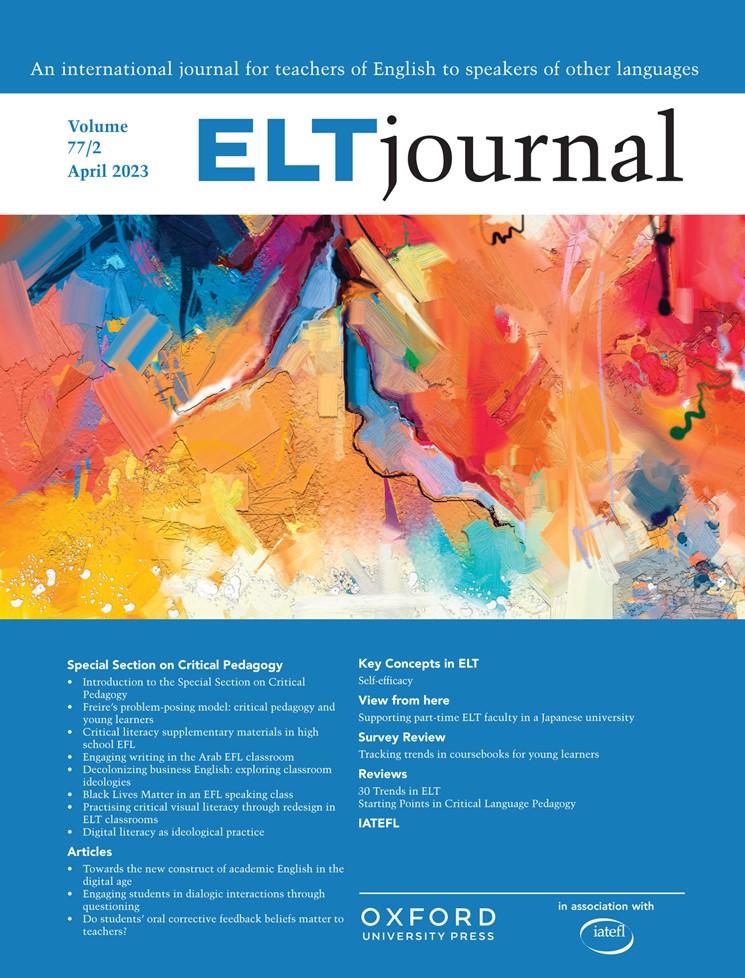 | Digital literacy as ideological practice
|
 | A systematic review of digital storytelling in language learning in adolescents and adultsBy Nikki Zhi Li Lim, Azrifah Zakaria & Vahid Aryadoust |
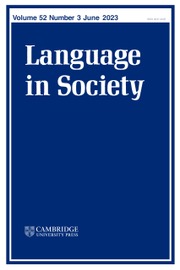 | Performing microcelebrity: Analyzing Papi Jiang's online persona through stance and styleBy Csilla Weninger & Li Danyun |
 | The different ways to write publishable research articles: Using cluster analysis to uncover patterns of APPRAISAL in discussions across disciplinesBy Zhang Weiyu & Cheung Yin Ling |
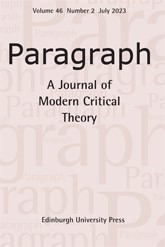 | Imaginative Capacity as Form-of-Life: Giorgio Agamben, Wallace Stevens, and the 'In operative' Potential of Poetry |
 | Resistance in Dis-Ability: Terrence Malick's "A Hidden Life" and the Fragility of Phenomenological Worldhood |
 | To Give the Literary Event: Blanchot and Lawrence's Narratives of Life/Death |
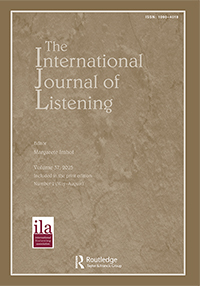 | A neurocognitive comparison of listening to academic lectures and natural sounds: implications for test validityBy Janice Lee Jia Yi, Vahid Aryadoust, Li Ying Ng & Stacy Foo |
 | The typology of second language listening constructs: A systematic reviewBy Vahid Aryadoust & Lan Luo |
 | Investigating Test-Taking Strategies in Listening Assessment: A Comparative Study of Eye-Tracking and Self-Report QuestionnairesBy Andralyn Rui Lin Low & Vahid Aryadoust |
 | A scientometric analysis of applied linguistics research (1970–2022): methodology and future directionsBy Azrifah Zakaria & Vahid Aryadoust |
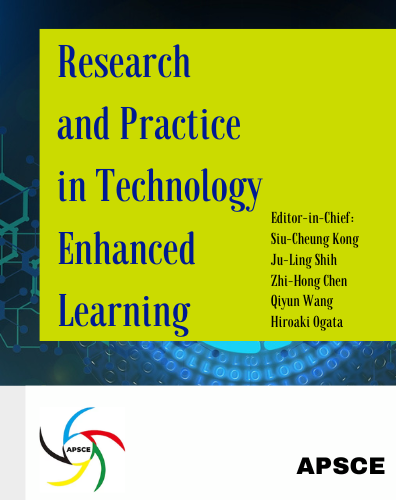 | An eye-tracking investigation of visual search strategies and test performance of L1 and L2 listening test takersBy Vahid Aryadoust & Stacy W. L. Foo |
 | Exploring the state of research on motivation in second language learning: a review and a reliability generalization meta-analysisBy Vahid Aryadoust , Yu Xuan Natalie Soo & Zhai Jiayu |
 | A review of digital storytelling in language learning in children: methods, design and reliabilityBy Clare Ong & Vahid Aryadoust |
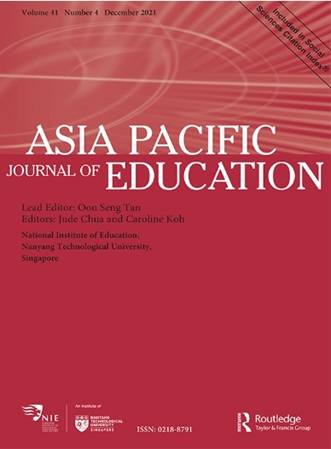 | English language education in Singapore: research, practice & implicationsBy Joseph Lo Bianco, Sally Ann Jones & Loh Kok Khiang Jason |
 | Understanding middle leaders’ concerns in curriculum change: a missing perspectiveBy Loh Kok Khiang Jason & Hu Guangwei |
 | Formative assessment in English language teaching: exploring the enactment practices of teachers within three primary schools in SingaporeBy Kiren Kaur |
 | Issues of error selection for focused written corrective feedback in authentic classroom contextsBy Icy Lee |
.png?sfvrsn=2f99003e_3) | What can gaze behaviors, neuroimaging data, and test scores tell us about test method effects and cognitive load in listening assessments?By Vahid Aryadoust , Stacy Foo & Ng Li Ying |
.png?sfvrsn=2f99003e_3) | Examining the factor structure and its replicability across multiple listening test forms: Validity evidence for the Michigan English TestBy Liu Tingting, Vahid Aryadoust & Stacy Foo |
 | Unpacking the teachers’ multimodal pedagogies in the Singapore primary English language classroomBy Victor Lim Fei , Phillip A. Towndrow & Tan Jia Min |
Let’s play together: ways of parent–child digital co-play for learningBy Toh Weimin & Victor Lim Fei |



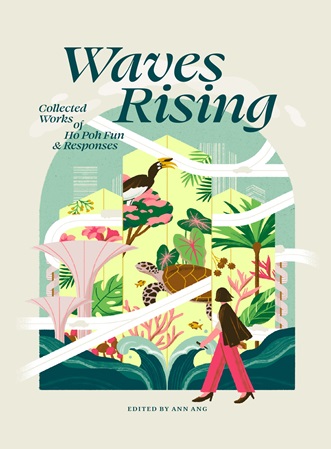
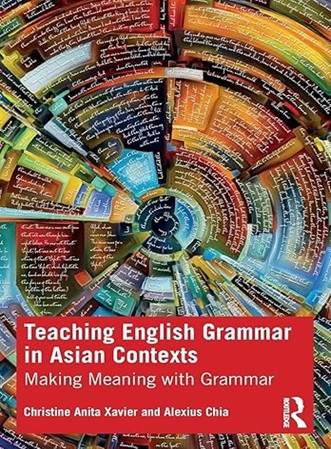
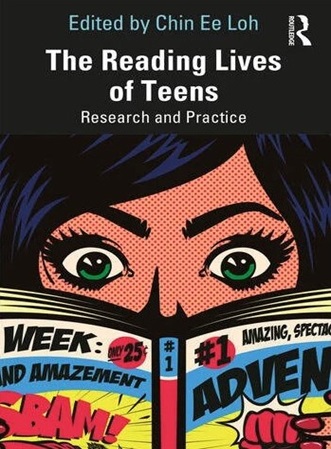
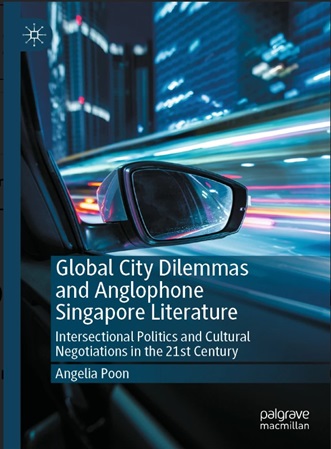
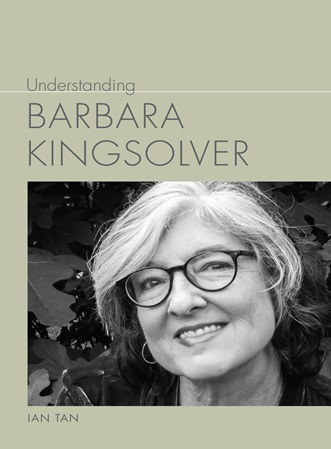

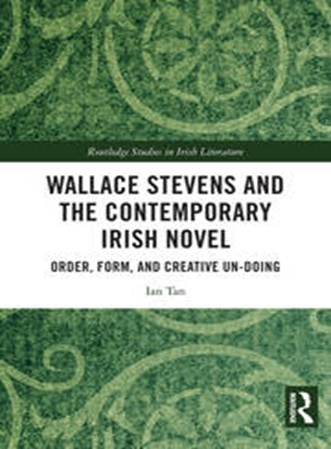
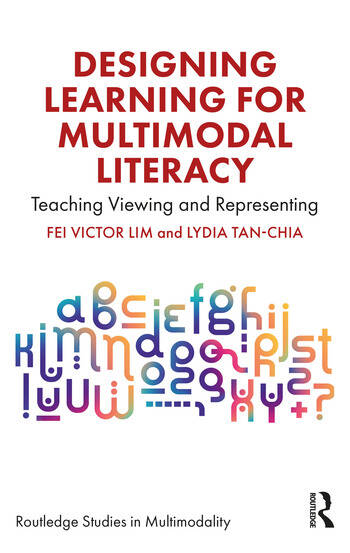
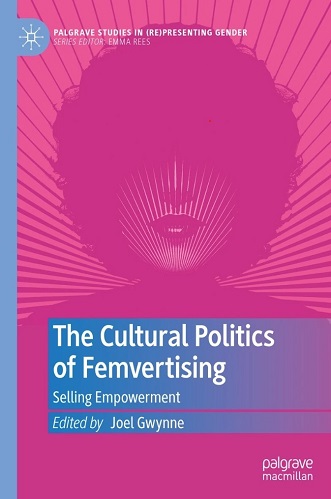

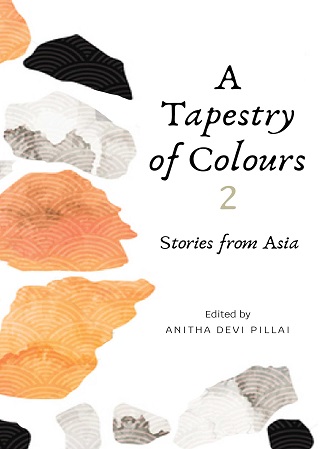


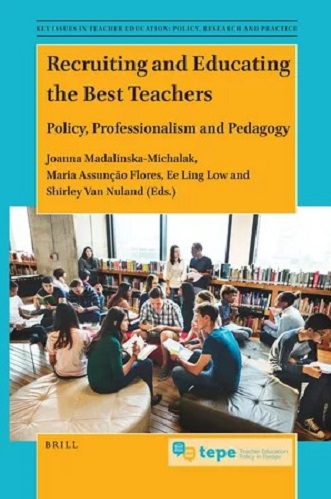
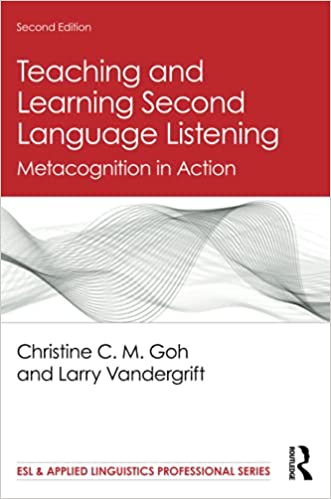
.png?sfvrsn=976920c9_3)
.jpg?sfvrsn=1d5ce40b_3)
